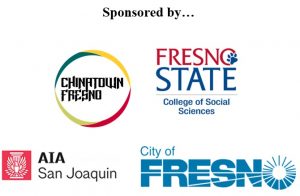Featured Image Courtesy 1FlatWorld
Advanced Topics in Adaptive Reuse: Housing

Through the generosity of our partners, this program will be available for free to students.Students: Simply complete the registration form and select the "College & University Students Only" registration option.
Adaptive reuse has the potential to fundamentally change the economic destiny of blighted or overlooked neighborhoods; encourage investment in new ventures; and inspire entrepreneurs to incubate new ideas, injecting much needed activity into a dense historic downtowns. However, housing is also a key component of the equation, and this workshop will help attendees overcome and decode the complex challenges associated with mid and large-scale adaptive reuse for affordable housing.
Despite the challenges, a properly executed adaptive reuse project can result in a win-win for all stakeholders and become a critical economic development catalyst for further development in the historic cores of a city.
What can affordable housing developers, community benefit organizations, financiers, and city planners learn from past success? How can architects, engineers, and other consultants embark on such a project with confidence?
This advanced-level workshop will provide a 360-degree view of redeveloping historic properties for adaptive reuse and will focus on the incentives that help make such projects possible, including:
- Historic Rehabilitation Tax Credits (state and federal)
- Mills Act tax incentives
- New Markets Tax Credits
- Low Income Housing Tax Credits
- Economic Opportunity Zone funding
- Adaptive reuse ordinances, and more...
Sessions will examine some common challenges, and how to overcome them, including:
- Raising the funds
- Receiving entitlements
- Getting public and political support
- Identifying new and creative funding packages (i.e. "twinning" loans and tax credits with grants or other types of support)
Speakers
- Hamid Behdad, P.E., Central City Development Group; Esther Carver, Executive Director, Lowell Community Development Corporation; Michael Duarte, Director of Planning and Development, Fresno Housing Authority; Terence Frazier, Managing Member, TFS Investments; Mike Garavaglia, AIA, LEED AP BD+C, President, Garavaglia Architecture; Paul Halajian, AIA, LEED AP, Principal, Paul Halajian Architects; Jan Minami, Executive Director, Chinatown Fresno Foundation; Preston Prince, Executive Director, Fresno Housing Authority; Don Simmons, Distinguished Lecturer, Humanics, Philanthropy, and Community Based Leadership, California State University, Fresno; Dan Zack, Assistant Director of Planning, City of Fresno; Other speakers to be announced.
You Will Be Able To...
- Identify the components of successful adaptive reuse projects
- Understand how various stakeholders in an adaptive reuse project interact and collaborate
- Strategize on effective practices for mobilizing public and political support for a project
- Determine funding opportunities for various adaptive reuse scenarios
